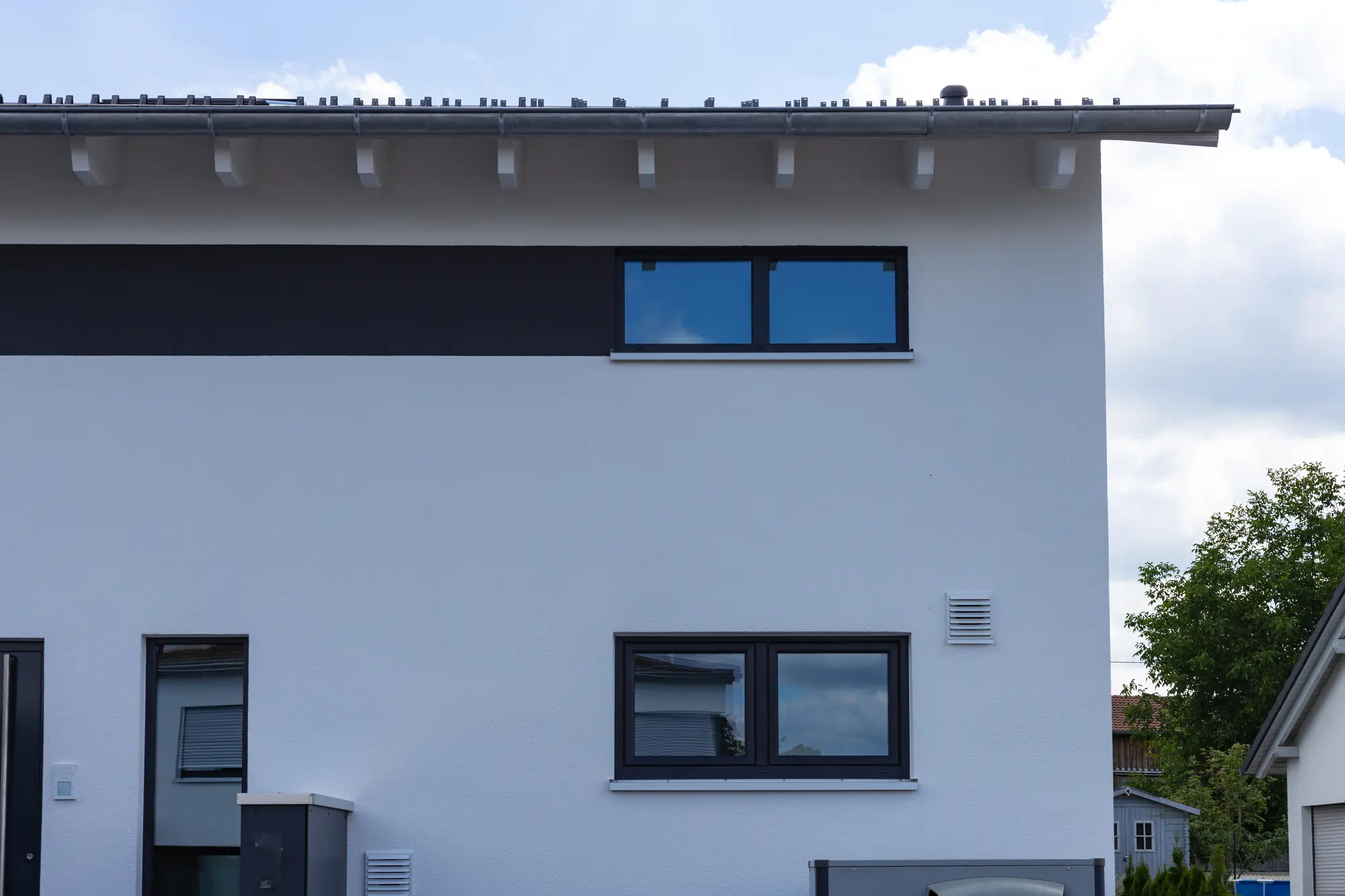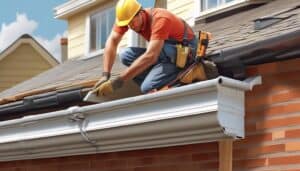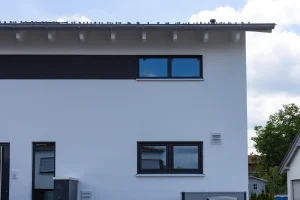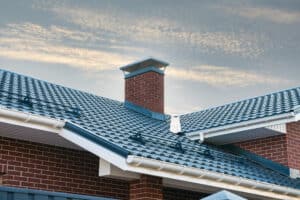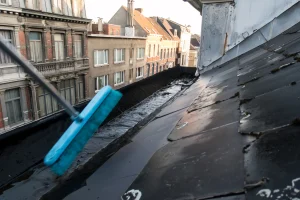Rain gutters are a vital part of any building as they help steer rainwater away from the foundation, reducing the risk of water damage. Now, in a place like Ireland, where rain is as common as the colour green, you might think, ‘Surely, gutters must be super important.’
But could Ireland’s unique climate and terrain throw a curveball into this assumption? Could there be other ways to manage rainwater that make gutters less of a must-have in this part of the world?
Let’s chat about the pros and cons of rain gutters in Ireland, what you should think about before committing to an installation, and see if we can help you make a more informed decision about whether or not to install gutters in your Irish home.
Key Takeaways
- Rain gutters in Ireland are essential for protecting buildings and gardens from water damage, despite the frequent rainfall, as they divert rainwater away from the foundation.
- The installation of rain gutters is a wise investment, saving homeowners from costly repairs due to erosion and structural damage caused by water accumulation.
- Regular maintenance of rain gutters is necessary to prevent blockages, cracks, and damage to walls, windows, and doors.
- While there are disadvantages, such as potential cracking in harsh weather conditions and maintenance requirements, the benefits of rain gutters in Ireland outweigh the drawbacks, providing long-term protection for homes and gardens.
Advantages of Rain Gutters in Ireland
Having rain gutters in Ireland is a good idea for more reasons than just their basic function. They play a critical role in safeguarding houses, gardens, and outbuildings from the harmful impact of rainfall. One of the top benefits of rain gutters is how much money they can save you. Even though the initial price of installing rain gutters might vary based on the size and material, it’s a smart investment for the future.
Rain gutters shield the base of buildings from water damage, an expensive problem to resolve. By steering rainwater away from the base, gutters lower the chances of erosion and possible damage to the structure.
Moreover, rain gutters need regular checks and clean-ups to ensure they’re working at their best. This upkeep usually involves inspecting and cleaning the gutters to stop any blockages. When the gutters are clear, water can flow without hindrance and stop problems like water accumulation, cracks, and damage to walls, windows, and doors from happening.
Regular upkeep also helps prolong the gutters’ life, saving homeowners from the cost of needing to replace them too soon.
Disadvantages of Rain Gutters in Ireland
When thinking about the downfalls of rain gutters in Ireland, a few concerns come to mind. One of these is the high likelihood of cracking in uPVC guttering due to the harsh weather conditions. This can cause the gutters to become brittle, warp, and distort, which can reduce their efficiency. Plus, it’s crucial to keep up with regular maintenance to avoid water damage, but this can take up a lot of time and potentially rack up a hefty bill. The need for gutter maintenance can fluctuate, depending on things like how much debris accumulates and the type of plants growing nearby.
Another potential downside is the cost of replacing gutters. This can differ based on a few factors, such as the size of your house, the type of gutter, and how complicated the installation process is.
And let’s not forget that rainwater doesn’t always behave the way we want it to. Rain can hit from all angles, causing water to pool and create problems. This can defeat the whole point of having rain gutters in the first place. Also, if you’re thinking of adding gutters to your shed after you’ve already bought it, you might find it’s a bit more challenging than you’d expected. This is where you might need some help from a professional or a good set of instructions.
Given these potential issues, it might be a good idea to look into other drainage systems that might work better for you. And remember, keeping up with regular maintenance is key to avoiding water damage and keeping your rain gutters working as they should.
Factors to Consider When Deciding on Rain Gutters in Ireland
When you’re mulling over the idea of installing rain gutters in Ireland, there are a fair few things you need to think about. Firstly, there’s the price tag. Now, the cost can fluctuate, depending on the size and material of your gutters. Some folks might view this as a bit of a financial drain, but the reality is, rain gutters can save you a pretty penny in the long run. They work to keep water damage at bay, protecting the foundation of your house, the walls, and your garden – repairs to which can burn a hole in your pocket.
Next up, there’s the question of upkeep. Keeping your gutters clean and functional is a must-do. If they’re left unattended, they can get blocked, leading to water spilling over and wreaking havoc on your roof and walls. But the good news is, we now have some nifty gutter tech like self-cleaning and leaf guard systems. They help to cut down on the maintenance needed.
Conclusion: Making an Informed Decision About Rain Gutters in Ireland
Rain gutters shield your home from water-related harm by guiding the rainwater away from your home’s foundation. This prevents potential damage to the walls, windows, doors, and even your garden. Now, you might be concerned about uPVC guttering cracking due to extreme weather conditions or age, but with correct installation and regular upkeep, this risk can be kept to a minimum.
With regards to the cost of rain gutters, it’s not a one-size-fits-all situation. The cost of replacing gutters can fluctuate based on aspects like the size of your home, the type of gutter, and how complex the installation process is. To get a precise estimate that’s tailored to your needs, it’s a good idea to reach out to professionals. And remember, it’s not just about the installation. Regular gutter maintenance is also a must, ideally about once a year, to keep things running smoothly. But depending on your situation, such as the amount of debris and the type of vegetation around your home, you might need to schedule maintenance more frequently.
Frequently Asked Questions
Is It Okay to Have No Gutters?
Sure, you might not consider gutters a must-have feature for your home, but skipping out on them might not be the smartest move. Why, you ask? Well, they play a big role in managing rainwater and maintaining the condition of your house. Think about it – gutters direct rainwater away from your house, protecting the foundation from water damage. So, while a house without gutters isn’t unheard of, it might not be the best idea for the longevity of your home.
Should I Get a Rain Gutter or Not?
The importance of rain gutters on buildings cannot be stressed enough. They serve as a shield, protecting your property from potential water damage by collecting rainfall and guiding it away from the foundation. But they don’t just set themselves up, right? You need a proper installation and regular maintenance to ensure they’re in it for the long haul. As for the costs? Well, getting a professional quote can give you a pretty accurate picture of what to expect financially if you’re considering replacing your gutters.
How Much Does It Cost to Replace Gutters in Ireland?
If you’re living in Ireland and wondering about the cost of replacing your gutters, it can depend on a few things like the size of your home and the type of gutters you choose. For the most accurate pricing, it’s best to get in touch with professionals in the field who can give you a detailed quote.
Where Does Rainwater Go From Gutters in Ireland?
In Ireland, when rain hits the rooftops, it’s directed into gutters and then flows into downspouts. From there, it can be routed to green drainage systems or collected as a resourceful water source. This process not only saves the landscape from damage and erosion but also offers an eco-friendly water supply. It’s an effortless yet effective way to conserve water, don’t you think?
